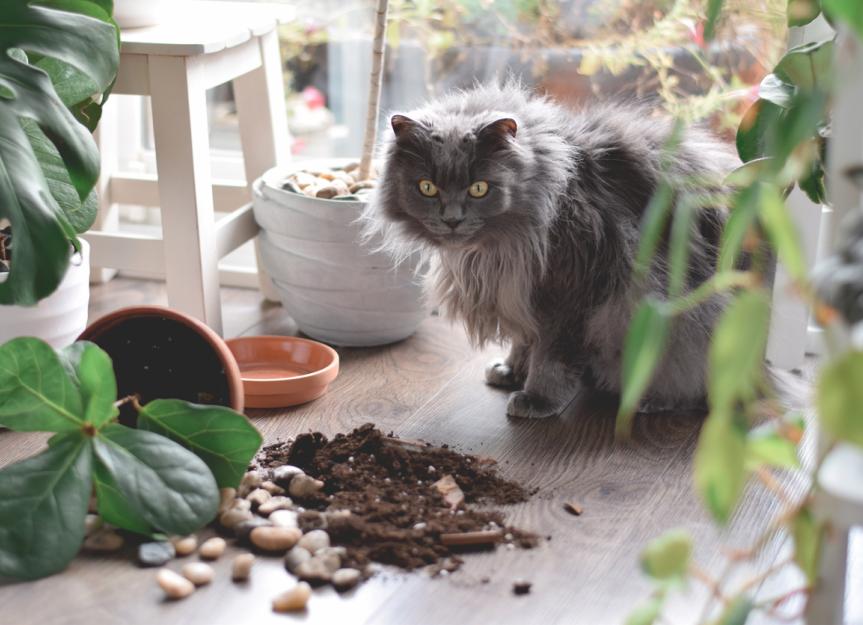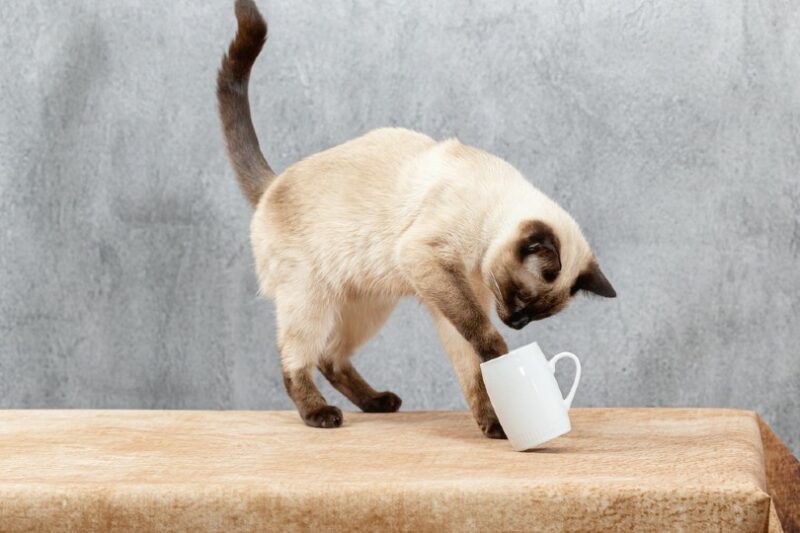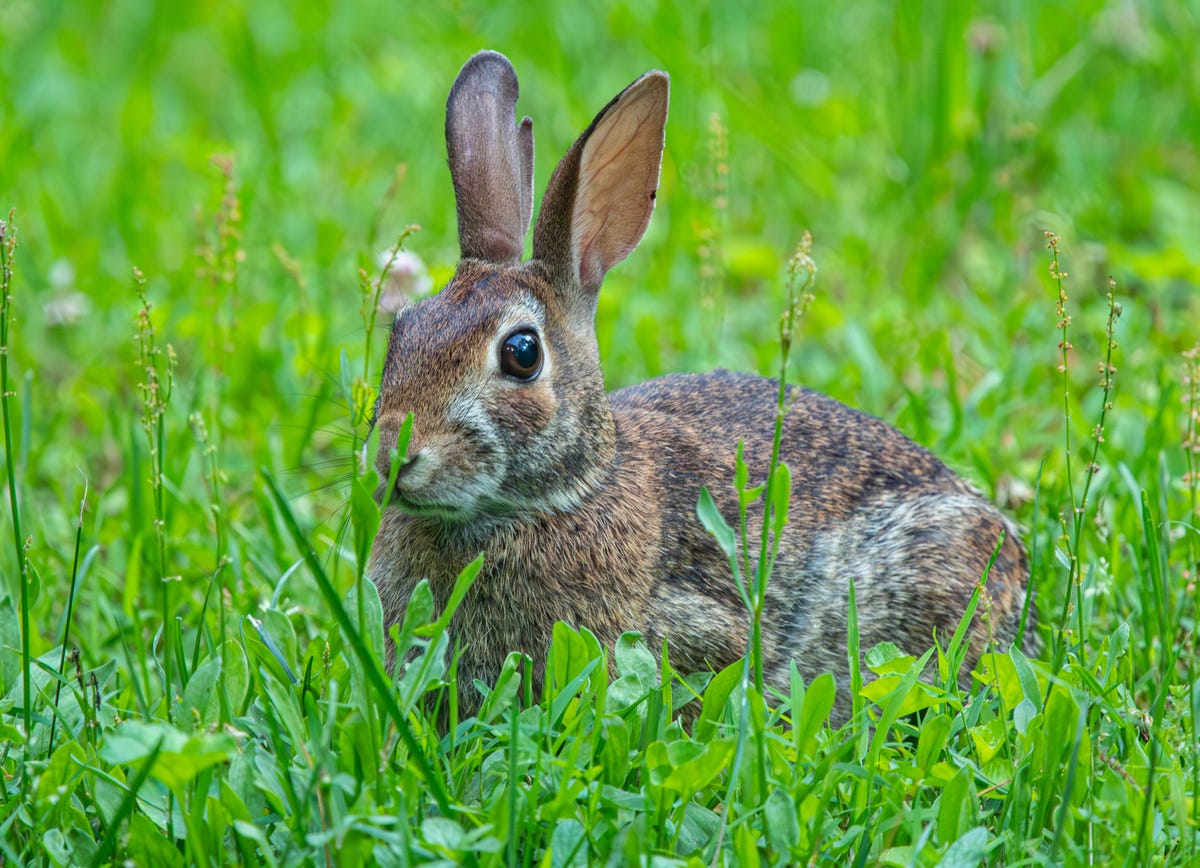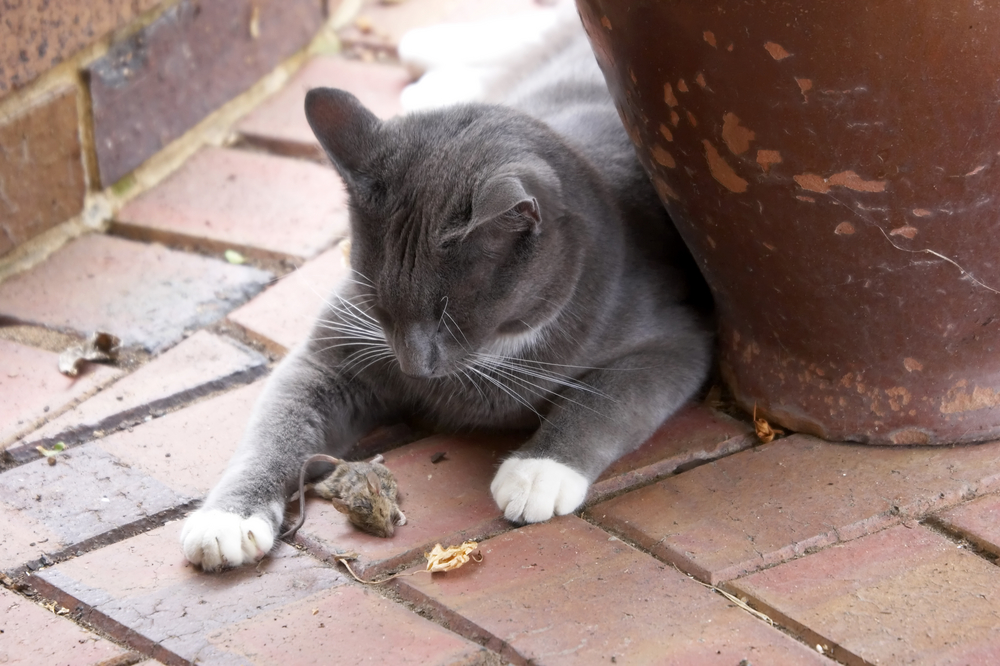Why does my cat knock things over?

Cats have an uncanny ability to knock things over, whether it’s a cup of water, a vase, or even a lamp. This behavior can be frustrating for cat owners, who often wonder why their feline companions engage in this seemingly mischievous act.
Playful Curiosity and Hunting Instincts
Cats, being natural predators, possess an innate drive to hunt and play. This instinct is deeply ingrained in their behavior, and it’s one of the reasons cats knock things over. In the wild, cats stalk and chase their prey, and knocking objects over can simulate this hunting behavior. When a cat sees an object, they might perceive it as something to be ‘caught’ and ‘pounced on.’ This is why you might see a cat batting at a toy, or even a piece of string, and then knocking it over.
Moreover, knocking things over can be a form of play for cats. Play is an essential part of a cat’s development, particularly in their younger years when they have an abundance of energy. Playing with objects and knocking them over can be an outlet for this energy and an opportunity for them to engage in their natural behaviors.
Seeking Attention or Interaction
Cats are creatures of habit and they thrive on routine. They have a deep-seated need for attention and interaction, which is why they often seek out their owners for playtime, cuddles, or simply to be near them. However, when they feel that they are not getting the attention they need, they may resort to more assertive methods to get it.
Knocking things over can be a way for cats to assert themselves and demand attention. It is a behavior that can be particularly common in cats that are left alone for long periods of time, such as those that are home alone during the day while their owners are at work. These cats may resort to knocking things over as a way to communicate their need for interaction and attention.
Additionally, cats are highly sensitive to changes in their environment and routine. If there has been a recent change in your cat’s routine, such as a new pet or a new baby in the household, they may feel anxious or stressed and resort to knocking things over as a way to cope with their feelings.

Territorial Marking
Cats are territorial creatures by nature, and they have various ways of marking and defining their territory. One method they use is scent marking, which involves leaving their scent on objects and surfaces to establish ownership and communicate with other cats in the vicinity. Knocking things over can be a subtle yet effective way for cats to engage in this territorial behavior.
Scent is a crucial means of communication for cats. They have scent glands located in various parts of their bodies, including their cheeks, paws, and tail base. When a cat rubs against an object or knocks it over, they are transferring their scent onto that object. This scent serves as a signal to other cats, indicating that the territory has been claimed.
For cats, maintaining a sense of dominance within their territory is essential for their well-being. By knocking over objects, cats may be asserting their dominance and establishing themselves as the primary occupant of the space. This behavior is particularly common in multi-cat households, where cats may compete for resources and territory.
Tips for Managing the Behavior
While knocking things over is a natural behavior for cats, it can be frustrating and even damaging to your belongings. Fortunately, there are several strategies you can employ to manage this behavior and create a more harmonious living environment for you and your cat.
One of the main reasons cats knock things over is to engage in play. By providing your cat with plenty of toys and interactive playtime, you can satisfy their natural instincts and prevent them from seeking out other objects to bat around. Look for toys that mimic the movements of prey, such as feather wands or laser pointers, to keep your cat entertained and engaged.
Cats are social animals, and they crave attention and companionship from their owners. By spending quality time with your cat each day, you can satisfy their social needs and reduce the likelihood of attention-seeking behavior. Try to set aside at least 15-20 minutes each day for one-on-one playtime or cuddling with your cat.
If your cat has a particular habit of knocking over certain items, such as plants or picture frames, you can use deterrents to discourage this behavior. Try placing double-sided tape or aluminum foil around the base of the object, as cats typically don’t like the texture of these materials on their paws. You can also try using a motion-activated deterrent, such as a can of compressed air or a motion-activated alarm, to startle your cat when they approach the object.










